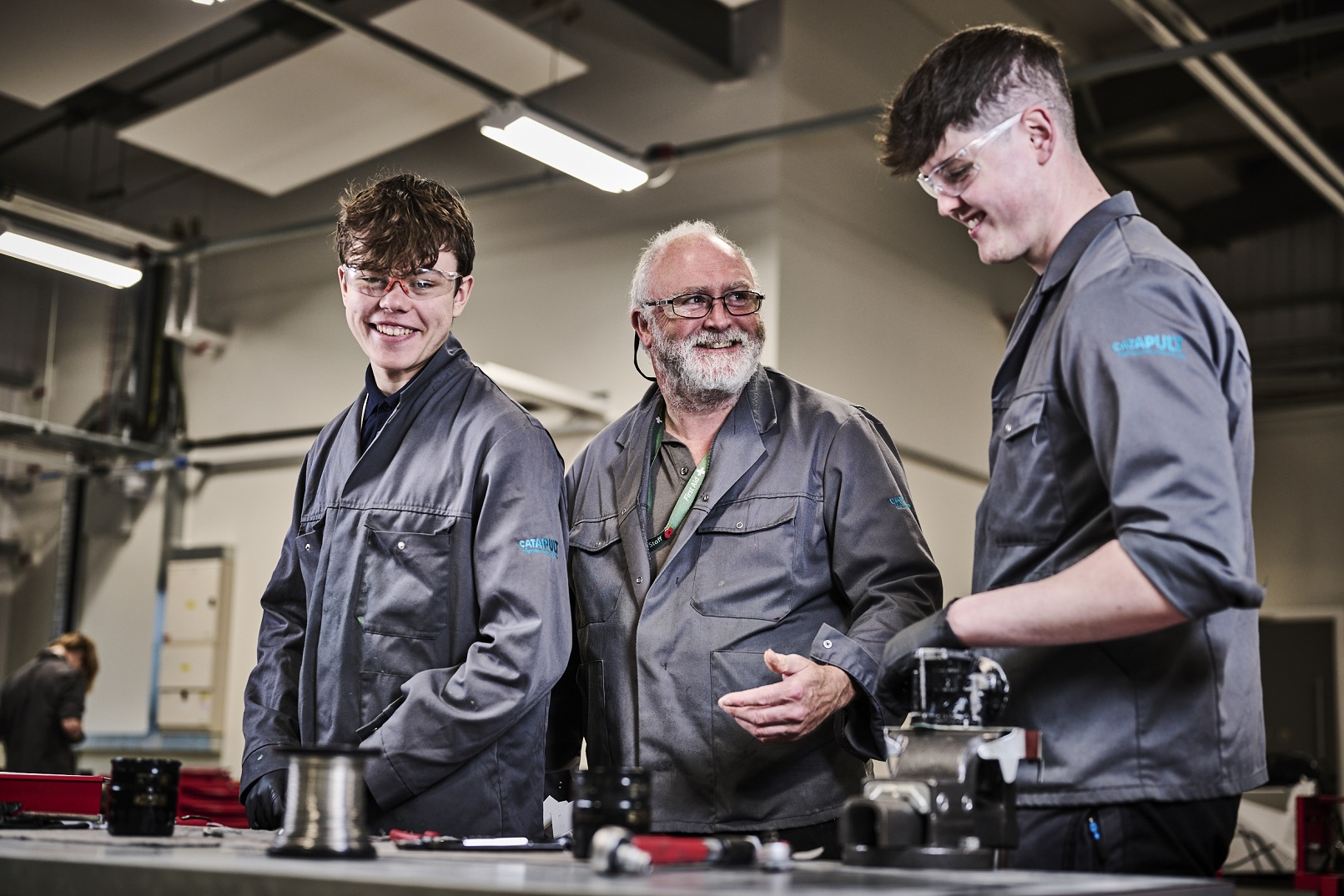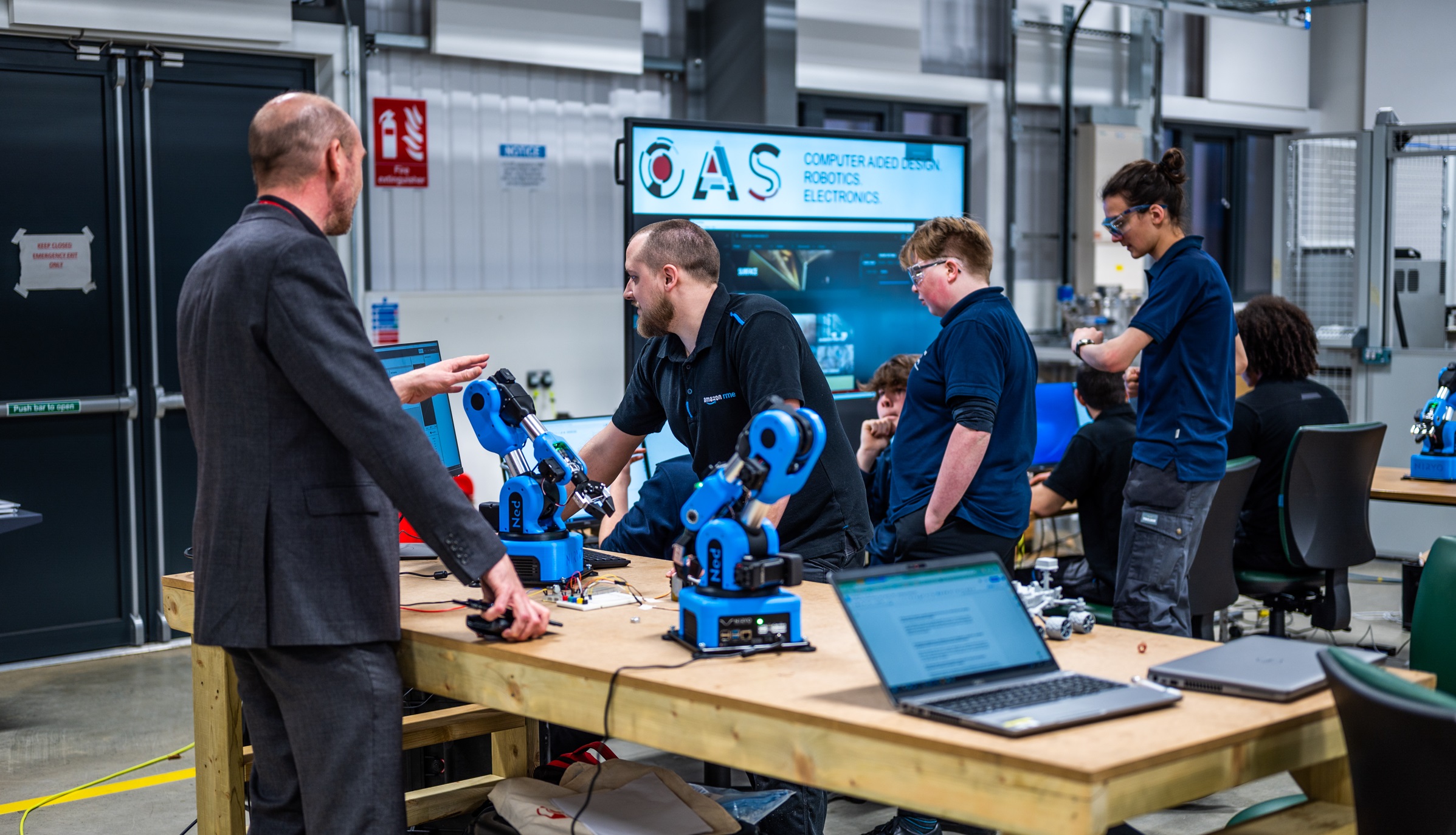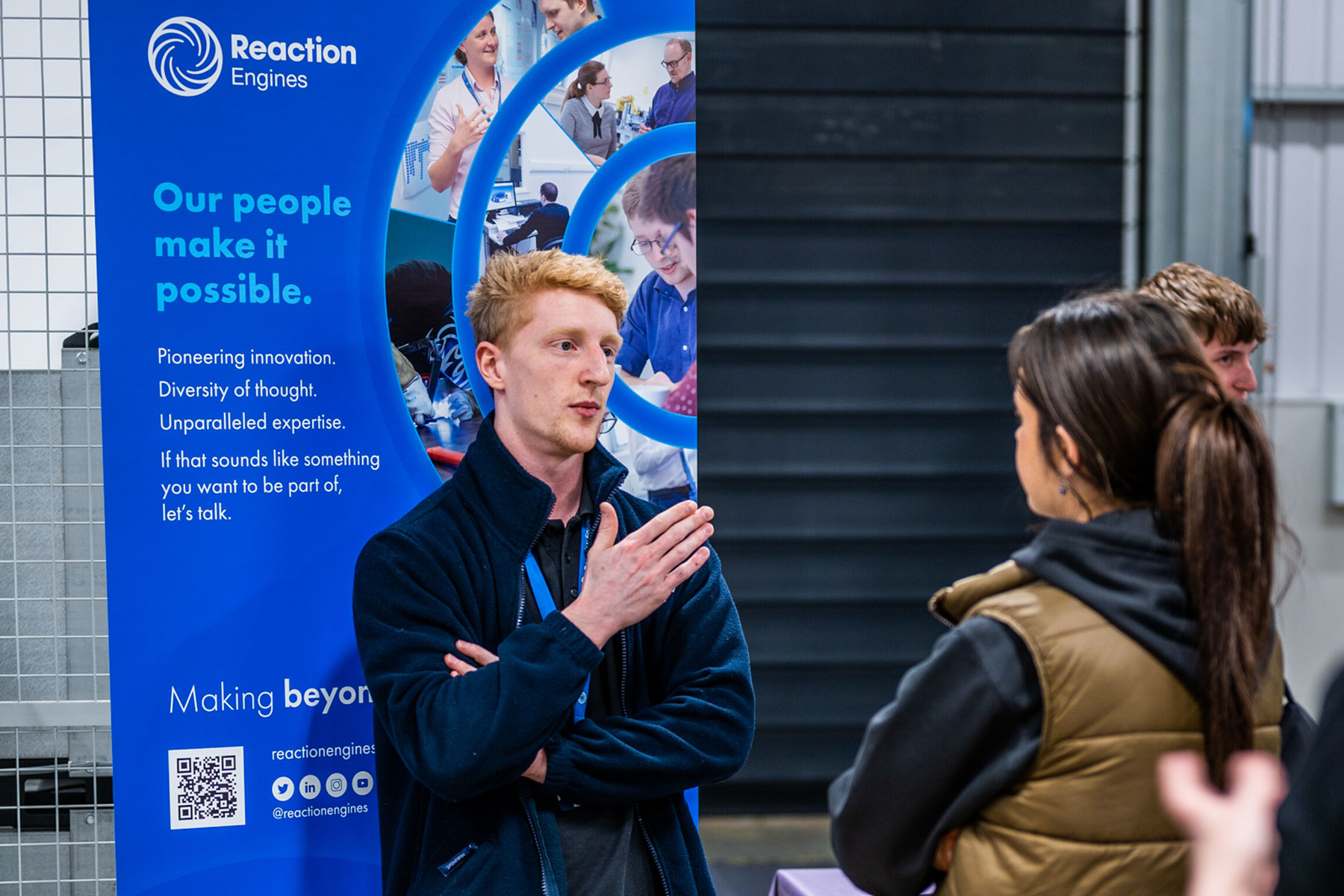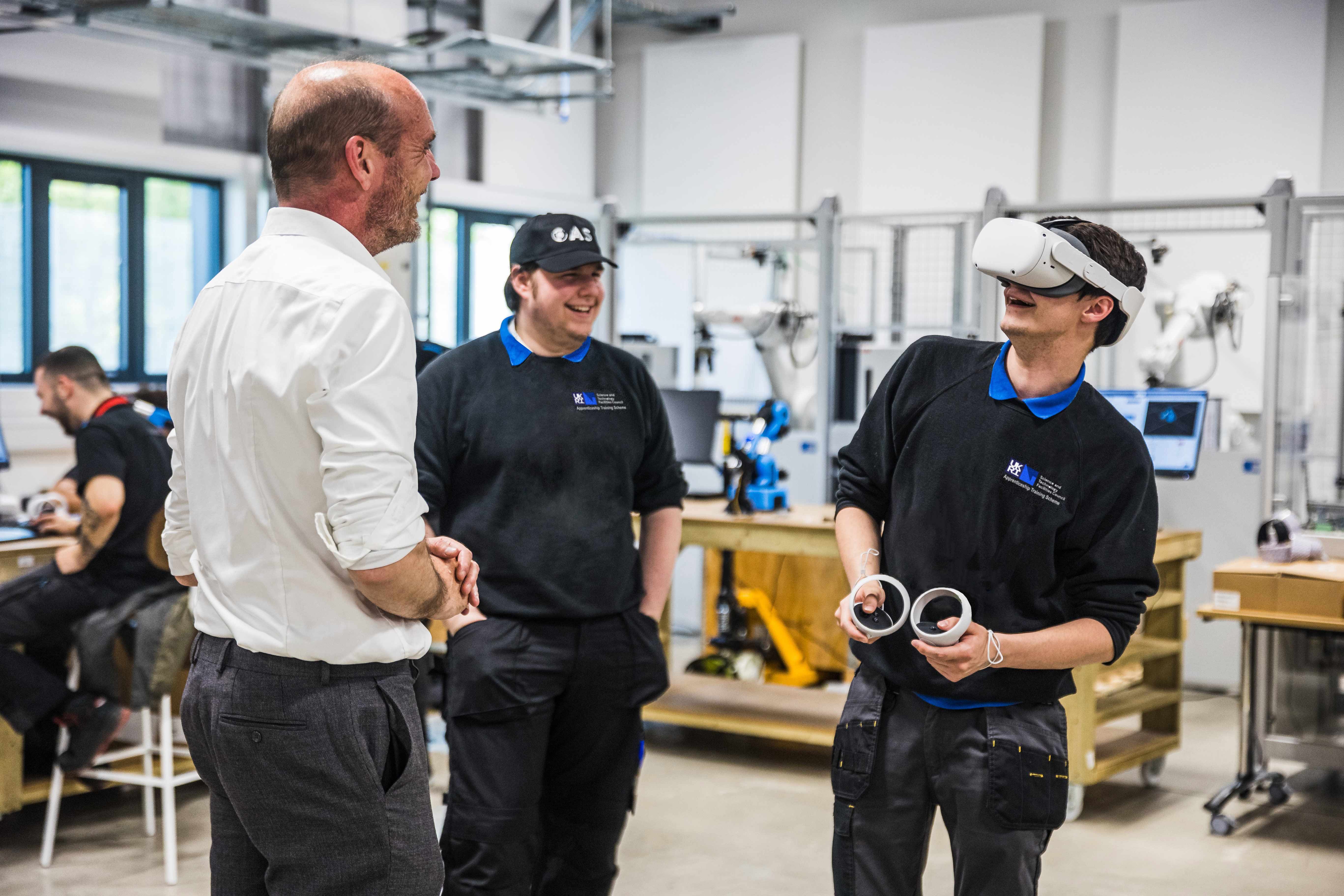Apprenticeships are gaining in popularity because of the unique benefits they offer compared to other learning pathways. If you enjoy hands-on learning and are looking for a springboard into the engineering and manufacturing sector, then our apprenticeship programmes are the perfect way to kick start your career!
We’ve answered the most frequently asked questions we receive about our apprenticeship programmes. If there’s anything you’d like to know that isn’t covered here, please get in touch with our helpful team via OASPhase2@the-mtc.org.
What is an apprenticeship?

An apprenticeship is a full-time job that enables you to train, gain experience, and get paid at the same time. It’s free for the apprentice, and at the end of your programme, you will have the right knowledge, skills, and behaviours you need to be successful in your chosen career.
An apprentice is an employee, and so is entering the world of work. Apprenticeships combine off-the job training (in training centre classrooms and workshops) and on-the-job training (learning with their mentors, managers, and teammates by carrying out their role).
To find out more general information about apprenticeships, click below.
How long is an apprenticeship?
Our Level 3 apprenticeship programme takes three years to complete. The first year includes 4-6 week blocks in the training centre where you will gain the knowledge, skills, and behaviours you’ll need to maximise the benefits of your on-the-job training when you head off to your employers’ site.
Over the next two years, you’ll gain real work experience as well as new skills and knowledge from your employer, returning to the training centre regularly for further ‘block release’ group sessions. At the end of your programme, we’ll support you to pass a final assessment to successfully complete your apprenticeship.
Our Level 4 apprenticeship programmes take four years to complete. You will be predominantly based with your employer from the outset, with day release to OAS for the first two years. In your final year, you prepare for and undertake your End Point Assessment.
What are the course entry requirements?
To qualify for our Level 3 Engineering Technician apprenticeship, you must meet the following criteria:
- Be over 16 at the start of your apprenticeship
- Have 5 GCSEs grades A*- C or 4-9 (or equivalent) including Maths and either English Language or English Literature
- Be eligible to live and work in the UK.
To qualify for our Level 4 apprenticeships, you must meet the following criteria:
- Be over 16 at the start of your apprenticeship
- Have a minimum of 5 GCSEs including Maths, either English Language or English Literature, and a Science-based subject at grades A*-C or 5-9
- Have a Level 3 Engineering Qualification or relevant engineering experience alongside being educated to A-Level standard in Maths and Physics or Computer Science
- Be eligible to live and work in the UK.
(We always screen applications on a case-by-case basis.)

How much practical and theory work will there be on the Level 3 apprenticeship?
In the first year, you will learn the basics of engineering then progress to more advanced theory and practical skills. This will include completion of theory and practical assignments, but the training team will be on hand to guide and support you every step of the way.
In years two and three, you will continue to develop and practice your advanced engineering skills to prepare for your end point assessment which takes place at the end of year three.
What is the application process?
There are a few ways to apply to become an OAS apprentice:
- You can click here to complete an application form
- You can apply for a specific apprentice vacancy directly with the employers who work with us. Our latest vacancies are regularly updated and can be found here: Latest Vacancies | OAS (ukaea.uk)
- Or you can find an employer you would like to work with and contact us to become the training provider.
Once we’ve received your application and confirmed that you meet our entry criteria, we will invite you to an Assessment Centre at OAS. You’ll have the chance to meet our team and tour our state-of-the-art workshops before undertaking a mock interview with one of our team, and a team building activity to showcase your teamwork and problem-solving skills.
Successful participants are then invited to apply for specific roles with our fantastic employer partners, with the selected candidates joining the programme to begin their new career.
It is important to note, that unless an employer offers you a full-time apprenticeship position, you cannot commence your training at OAS.
I have additional learning needs – how will you make sure I’m supported?
We are committed to ensuring that every OAS apprentice is supported to fulfil their potential. Our Inclusive Learning Coordinator provides additional learning needs support. They will work with you on a one-to-one basis, developing a personalised support plan to ensure your additional learning needs are identified and supported, such as extra support with English skills, or dyslexia support.
What are the benefits of an apprenticeship?
Apprenticeships offer a unique opportunity to gain a qualification alongside valuable work experience, free of charge and whilst earning a living:

- The skills employers want: Apprenticeships are designed in partnership with industry so that learners get the expertise that employers need in their businesses.
- Formal qualification and evidenced work experience: As well as achieving an industry-recognised qualification, you also gain years of hands-on experience working alongside existing experts within a real work environment, which employers tell us makes apprentices even more valuable.
- Paid work and no debt: Because you are employed as an apprentice, you earn while you learn, and since apprenticeships are fully funded, you also avoid the hefty debts that are often associated with university.
- Job stability: Nearly all our apprentices choose to continue working for their employers as a qualified technician once they have completed their apprenticeship.
What will I be paid?
An OAS apprentice’s basic salary in the first year exceeds the government’s recommendation, ranging from £10,000 to £18,000 per year. This increases each year as the apprentice gains in capability and experience. As well as earning while you’re learning, apprentices don’t have to pay anything towards their training, which is funded in full by the government or by your employer.
What types of career progression are available after the course?
It’s no secret that there is currently a huge skills gap in the UK engineering and manufacturing sector. This means that there is a vast range of opportunities with a chance to deliver positive impact through a meaningful career in an exciting and innovative sector.
After you have completed your apprenticeship, your career progression is limitless! It’s really up to you and your employer – you might progress from a Level 3 to a Level 4 apprenticeship, a degree apprenticeship or further training, or continue to gain more experience in your role and move into a specialist or managerial position. Many of our team (including our Managing Director and our CEO) began their careers as apprentices – it’s a fantastic first step on anyone’s career ladder!
What do you do differently at OAS?
We are committed to creating the next generation of engineering talent to accelerate the success of the UK’s manufacturing sector. We teach our learners the skills they’ll need for the future, as well as the expertise they need today.
OAS apprentices learn from proven industry experts in a purpose-built environment at the forefront of technological advancements. Our programme includes exposure to disruptive emerging technologies and new ways of working, empowering learners to add value to their employers through innovation. An ambitious enrichment programme also supports development of the ‘soft skills’ apprentices need for professional and personal success. We treat each and every learner as an individual and tailor their programme to make sure everyone fulfils their potential.
To find out more about the opportunities on offer, please contact OASPhase2@the-mtc.org.
